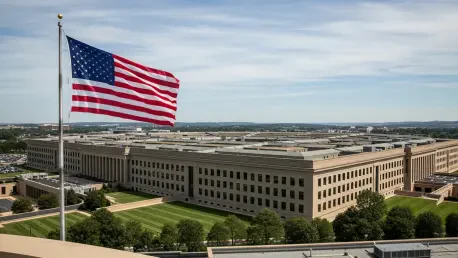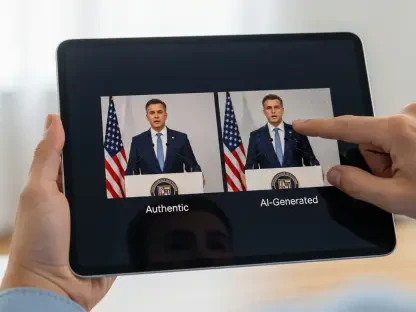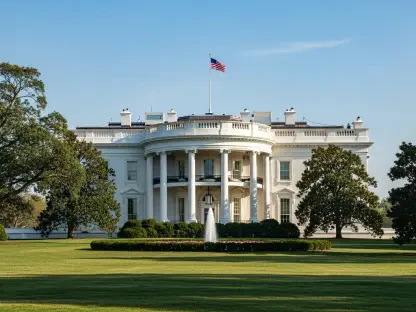What happens when the guardians of government accountability are silenced by the very institutions they are meant to oversee? In a chilling development, actions by Defense Secretary Pete Hegseth and OMB Director Russell Vought have sent shockwaves through Washington, raising urgent questions about the independence of inspectors general—those critical watchdogs tasked with rooting out waste, fraud, and abuse in federal agencies. This unfolding crisis strikes at the heart of public trust, as policies and funding cuts threaten to dismantle a system designed to protect taxpayer interests. The stakes couldn’t be higher, and the implications of these moves are reverberating across political divides, demanding attention from every corner of society.
The Stakes of Oversight Under Siege
At the core of this controversy lies a fundamental issue: the ability of inspectors general (IGs) to operate without interference. These officials are not just bureaucrats; they are the linchpin of transparency, ensuring that federal agencies remain accountable to the public. With Hegseth pushing restrictive reforms at the Department of Defense and Vought slashing funding for essential IG support systems, the risk of unchecked power looms large. This story matters because diminished oversight could embolden corruption, silence whistleblowers, and erode confidence in government at a time when trust is already fragile.
The broader context adds urgency to the situation. Across the nation, citizens rely on IGs to expose misconduct, from multimillion-dollar fraud schemes to systemic inefficiencies. If their autonomy is compromised, the consequences could ripple through every level of governance, leaving taxpayers vulnerable to mismanagement. This is not a distant concern but a pressing challenge that demands scrutiny and action, as the decisions made now will shape accountability for years to come.
Hegseth’s Vision: A Clampdown on Complaints
Defense Secretary Pete Hegseth has ignited fierce debate with his proposed overhaul of the IG process at the Department of Defense. During a recent speech to senior military leaders in Quantico, Virginia, he criticized the current system as being “weaponized” by complainers and ideologues, arguing for tighter control over investigations. His subsequent memo outlined drastic changes, including a seven-day credibility check for complaints and measures to scrutinize repeat complainants, raising fears that legitimate whistleblowers could be deterred from coming forward.
Legal experts have sounded the alarm over these reforms. Andrew Bakaj, a prominent whistleblower attorney, pointed out the potential harm, citing a case where a repeat complainant uncovered multimillion-dollar fraud within a federal contract. “These policies risk painting all whistleblowers as nuisances rather than heroes,” Bakaj warned. Critics argue that such measures could create a chilling effect, discouraging employees from reporting misconduct for fear of being dismissed or targeted, thus allowing abuses to fester unchecked.
The tone of Hegseth’s rhetoric has also drawn scrutiny. By framing oversight as a burden rather than a necessity, his approach suggests a shift toward top-down control over investigations. This perspective has alarmed even some within military circles, who see the IG role as vital to maintaining integrity in defense operations. As debates intensify, the question remains whether these changes will protect the system or undermine its very purpose.
Vought’s Budget Axe Falls on Oversight Infrastructure
Meanwhile, OMB Director Russell Vought has delivered a severe blow to IG independence through a sweeping funding cut to the Council of the Inspectors General on Integrity and Efficiency (CIGIE). This decision, affecting fiscal budgets starting from this year to 2027, has led to the furlough of 25 staff members and the shutdown of critical tools like Oversight.gov, a public platform for tracking IG findings. The move has also disrupted whistleblower hotlines and training programs, hampering coordination across agencies.
The impact of this defunding is already tangible. With key resources offline, IGs struggle to collaborate on cross-agency investigations, weakening their ability to tackle systemic issues like pandemic relief fraud. An OMB spokesperson defended the cuts, claiming that IGs have become “corrupt” and “partisan,” but this justification has been widely contested. Many see the decision as a direct attack on the infrastructure that empowers oversight, leaving individual IG offices isolated and under-resourced.
Congressional leaders have decried the move as contrary to legislative intent. The partial restoration of funding for specific initiatives, such as the Pandemic Response Accountability Committee, offers little solace when core functions remain at risk. This financial strangulation of CIGIE underscores a broader strategy to diminish the collective strength of IGs, raising serious doubts about the government’s commitment to accountability.
A Chorus of Alarm Across the Aisle
The backlash to these developments has been swift and bipartisan, reflecting deep unease about the future of government oversight. Senators Susan Collins of Maine and Chuck Grassley of Iowa, both Republicans, have publicly condemned the actions, warning that they threaten the integrity of a system designed to protect taxpayers. “Inspectors general are not the enemy; they are essential to good governance,” Grassley stated during a recent press conference, echoing a sentiment shared by many.
Advocacy groups like Whistleblower Aid and the Project on Government Oversight (POGO) have also raised their voices, emphasizing the human cost of these policies. They point to the potential demoralization of federal employees who witness wrongdoing but fear retaliation under new rules. Former IG Mark Greenblatt added weight to these concerns, noting that existing safeguards already prevent partisan bias in investigations, rendering such aggressive reforms unnecessary and harmful.
Anecdotes from within federal agencies paint a grim picture. One anonymous DOD employee shared fears of reporting misconduct, citing the proposed seven-day credibility check as a barrier to action. “If I speak up, will I be labeled a troublemaker?” the employee questioned. Such stories highlight the real-world stakes, amplifying the urgency felt by lawmakers, experts, and citizens alike as they rally to defend IG autonomy.
A Troubling Pattern of Hostility
These actions by Hegseth and Vought do not exist in isolation but fit into a larger pattern of tension between the current administration and inspectors general. Since taking office, President Trump has shown consistent hostility toward IGs, evidenced by the mass firing of 17 officials at the start of his second term. This history, coupled with past retaliation against whistleblowers tied to significant investigations, suggests a deliberate effort to curb oversight that might challenge executive authority.
The defunding of CIGIE, in particular, has drawn comparisons to earlier attempts to weaken accountability mechanisms. Some speculate that the cuts are tied to CIGIE’s critical reports on figures like Homeland Security IG Joseph Cuffari, a Trump appointee accused of misconduct yet never disciplined. This backdrop of systematic pushback against IGs fuels fears that the current moves are less about reform and more about control, aiming to reshape oversight into a tool of compliance rather than critique.
Looking at the cumulative effect, the dual assault—operational restrictions at DOD and systemic defunding via OMB—paints a picture of a coordinated strategy. This historical context adds weight to bipartisan concerns, as it reveals not just isolated policy shifts but a sustained campaign to redefine the role of IGs in federal governance. The implications for transparency and public trust are profound, demanding a closer examination of motives and outcomes.
Charting a Path to Protect Accountability
In the face of mounting threats, actionable steps have emerged to safeguard inspector general independence and rebuild confidence in oversight. Bipartisan legislative efforts, such as Representative Rosa DeLauro of Connecticut’s push to establish an IG at OMB and secure stable CIGIE funding, offer a critical starting point. These proposals aim to counter policy overreach and ensure that IGs have the resources needed to function without fear of interference.
Public advocacy also plays a vital role in this fight. Engaging with organizations like POGO can amplify awareness and pressure lawmakers to prioritize oversight protections. Citizens are encouraged to support campaigns that highlight the importance of IGs, ensuring that their voices contribute to the broader dialogue on government integrity. Such grassroots efforts can shift the narrative, reframing accountability as a shared value rather than a political battleground.
Finally, strengthening whistleblower protections remains essential. Advocating for anonymous reporting channels and legal safeguards can mitigate the deterrence caused by policies targeting complainants. These measures, taken together, provide a roadmap for stakeholders to preserve the watchdog role of IGs, ensuring that the mechanisms of accountability endure despite current challenges. Reflecting on this struggle, it becomes clear that the battle for transparency has united diverse voices in a common cause, setting the stage for meaningful change through sustained effort and vigilance.









